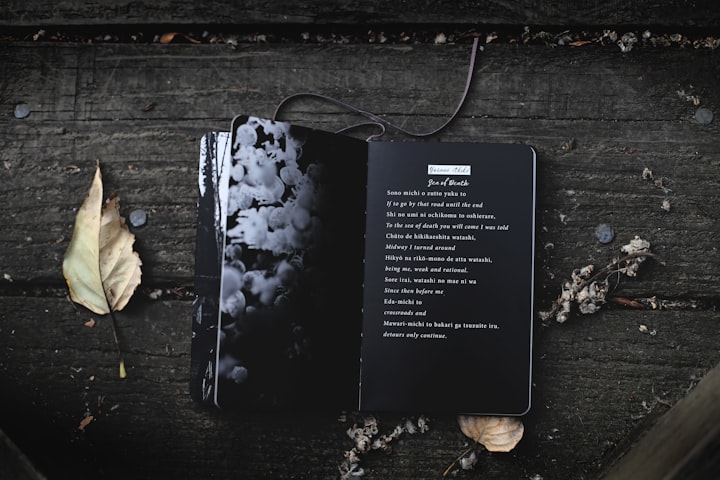The Power of Poetry
Exploring the Beauty, Emotion, and Impact of Poetry on Human Experience

What is Poetry:
Poetry is a form of literature that uses language to create a special kind of aesthetic experience, often through the use of rhythmic and/or musical language, imagery, and figurative language. Poetry can take many forms, including sonnets, haikus, ballads, and free verse. Unlike prose, which typically follows standard grammatical and syntax rules, poetry often employs unconventional grammar and syntax to create a unique and memorable effect on the reader or listener. Poetry can express a wide range of emotions, ideas, and experiences, and is often used to explore complex themes such as love, loss, and the human condition. Poetry can also be a powerful tool for social and political commentary, and has been used throughout history to inspire, challenge, and provoke thought.
Life and works of famous poets
There are many famous poets throughout history, each with their own unique style and contributions to the world of literature. Here are brief overviews of a few of them:
William Shakespeare: Considered one of the greatest playwrights and poets of all time, William Shakespeare wrote numerous sonnets and plays, including Romeo and Juliet, Hamlet, and Macbeth.
Emily Dickinson: An American poet known for her unique style and unconventional use of punctuation, Emily Dickinson's poetry explored themes such as death, nature, and the self.
Robert Frost: An American poet who wrote about rural life and the natural world, Robert Frost is known for works such as "The Road Not Taken" and "Stopping by Woods on a Snowy Evening."
Maya Angelou: An American poet, writer, and civil rights activist, Maya Angelou's poetry often addressed issues of race, gender, and identity. Her most famous work is "I Know Why the Caged Bird Sings."
Pablo Neruda: A Chilean poet and politician, Pablo Neruda's poetry explored themes such as love, politics, and nature. He won the Nobel Prize in Literature in 1971.
These are just a few examples of the many famous poets throughout history. Each poet has left their mark on the world of literature and continues to inspire readers and writers today.
Poetic forms and techniques
Poetry is a diverse form of literature with various forms and techniques that poets use to convey their message to the readers. Here are some of the most common poetic forms and techniques:
Sonnet
Haiku
Ballad
Free verse
Rhyme
Metaphor
Simile
Personification
Imagery
Symbolism
Sonnet: A 14-line poem with a fixed rhyme scheme and meter.
Haiku: A Japanese form of poetry with three lines and a 5-7-5 syllable count.
Ballad: A narrative poem that tells a story and often has a simple, repetitive structure.
Free verse: Poetry that does not have a fixed rhyme or meter.
Rhyme: The repetition of similar sounds at the end of words.
Metaphor: A comparison between two unlike things to create an image or idea.
Simile: A comparison between two things using "like" or "as."
Personification: Giving human-like qualities to non-human objects or concepts.
Imagery: Using sensory details to create a mental picture for the reader.
Symbolism: The use of symbols to represent ideas or concepts.
These are just a few examples of the many poetic forms and techniques that poets use. By understanding these forms and techniques, readers can gain a deeper appreciation and understanding of poetry.
The role of poetry in society
Poetry has played an important role in society throughout history and continues to do so today. Here are some of the ways in which poetry has impacted society:
Cultural preservation: Poetry has often been used to preserve cultural traditions and history, passing on stories and values from one generation to the next.
Social and political commentary: Poets have often used their work to comment on social and political issues, challenging the status quo and advocating for change.
Emotional expression: Poetry allows individuals to express their emotions in a unique and powerful way, helping them to process their feelings and connect with others who may be experiencing similar emotions.
Inspiration and motivation: Poetry can inspire and motivate individuals to take action, whether it's to pursue a dream, fight for a cause, or overcome a challenge.
Entertainment and enjoyment: Poetry can also simply provide entertainment and enjoyment, allowing individuals to escape their daily lives and immerse themselves in the beauty of language and art.
Overall, poetry has the power to inspire, connect, and transform society, making it an important part of human culture and history.





Comments
There are no comments for this story
Be the first to respond and start the conversation.